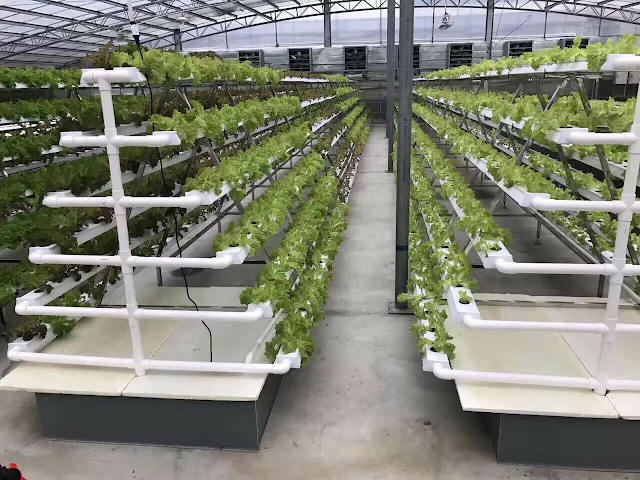Hydroponics Kits vs. Traditional Gardening: Pros and Cons

Are you torn between diving into the world of hydroponics or sticking with the tried and true methods of traditional gardening?
Both have their merits, but which one is right for you? Let's dive into the world of Central Coast hydroponics kits and traditional gardening to uncover their pros and cons.
Understanding Hydroponics Kits
Before we delve into the comparison, let's get a grasp on what hydroponics kits are all about. Essentially, hydroponics is a method of growing plants without soil, where the roots are submerged in a nutrient-rich solution.
These kits come with everything you need to get started, from the containers to the nutrients, making them an attractive option for beginners and seasoned gardeners alike.
Pros of Hydroponics Kits
Space-Saving: One of the biggest advantages of hydroponics kits is their space-saving design. You can set up a hydroponic system virtually anywhere, be it a small apartment balcony or a cramped basement.
Water Efficiency: Hydroponic systems use water more efficiently than traditional soil-based gardening. The recirculating nature of the nutrient solution means less water is wasted through evaporation or runoff.
Faster Growth: Without the limitations of soil, plants grown in hydroponic systems often experience faster growth rates. This means you can enjoy fresh produce in a shorter amount of time.
Year-Round Harvest: Since hydroponic systems are not dependent on seasonal changes, you can enjoy a year-round harvest regardless of the weather outside.
Pest and Weed Control: Say goodbye to pesky pests and relentless weeds. Hydroponic systems are less prone to infestations and require minimal weeding, saving you time and effort.
Cons of Hydroponics Kits
Initial Cost: While Central Coast hydroponics kits provide long-term savings, the initial investment can be higher compared to traditional gardening setups. However, many enthusiasts argue that the benefits outweigh the upfront costs.
Learning Curve: Mastering the art of hydroponics may take some trial and error, especially for beginners. Understanding the nutrient requirements and maintaining the pH levels can be daunting at first.
Dependency on Electricity: Most hydroponic setups require electricity to power pumps, lights, and other essential components. This dependency may not be ideal for off-grid enthusiasts or those experiencing frequent power outages.
Traditional Gardening: Back to Basics
Now, let's shift our focus to traditional gardening methods, where soil reigns supreme.
Pros of Traditional Gardening
Low Initial Cost: Traditional gardening typically requires fewer upfront costs. All you need is some soil, seeds, and basic gardening tools to get started.
Natural Nutrient Source: Soil is a natural reservoir of nutrients, providing plants with essential elements for growth. There's no need to worry about balancing nutrient solutions or pH levels.
Environmental Sustainability: Traditional gardening is inherently eco-friendly, requiring fewer resources such as electricity and plastics. Plus, soil helps sequester carbon, contributing to a healthier environment.
Connection with Nature: There's something therapeutic about digging your hands into the soil and nurturing plants from seed to harvest. Traditional gardening fosters a deep connection with nature and promotes mindfulness.
Adaptability: Traditional gardening methods have stood the test of time. Whether you're growing vegetables, flowers, or herbs, you can tailor your garden to suit your specific needs and preferences.
Cons of Traditional Gardening
Space and Location Constraints: Unlike hydroponics kits, traditional gardening requires adequate outdoor space with suitable sunlight and soil conditions. Urban dwellers or those living in apartments may face challenges in finding suitable gardening spots.
Seasonal Limitations: Traditional gardening is subject to seasonal changes, meaning you'll have to wait for the right time to plant certain crops. This can result in limited harvests and longer waiting periods.
Weed and Pest Management: Traditional gardens are more susceptible to weeds and pests, requiring regular maintenance and potentially harmful chemical interventions.
Water Usage: Soil-based gardening can be water-intensive, especially during dry periods. Without proper irrigation systems in place, you may find yourself using more water than necessary.
Conclusion
In the end, whether you opt for Central Coast hydroponics kits or stick with traditional gardening, both methods offer unique benefits and challenges. Consider your space, resources, and level of commitment before making your decision.
Whether you're a city dweller looking to maximise limited space or a nature enthusiast seeking a deeper connection with the earth, there's a gardening method that's perfect for you.


Comments
Post a Comment